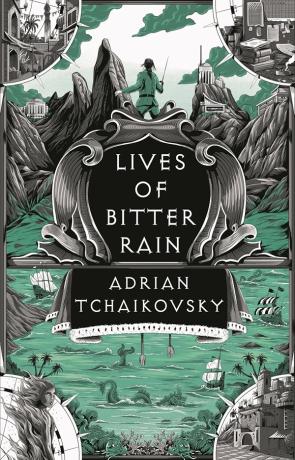Orthodoxy as an outcast's comfort - Kalina in The Second Bell by Gabriela Houston
One of my favourite characters to write for The Second Bell is also one of the least loveable characters, from the point of view of a reader.
Kalina is a young woman, living in the striga village, without any family and friends to claim her. Within their community’s the ultimate law is to bring the strigas’ other hearts under control. Self-knowledge and self-exploration are forbidden, for fear the strigas’ other hearts are a source of only evil and destruction, and Kalina has moulded herself into the village’s self-appointed sheriff and snitch, ensuring the rules are strictly followed.
The law is clear. Self-discipline is a must. And denial is an easy rule to follow for a person craving a structure to their life.
The striga village in my novel is a community of outcasts. Yet most of them have at least a mother or a friend to claim them. The relationships are formed in adversity and go beyond the bonds of blood.
But not so for Kalina. We’re told her parents died when she was young, but somehow not young enough to be claimed as a baby by any of the families in the community. The structures of the village provided her with the bare minimum of care, but surviving is not the same as thriving. In writing and referencing her backstory I wanted to emphasise that contrast, the gulf that separates charity-based subsistence and the love and care that allows a child to truly flourish.
As a child Kalina was moved between the different striga homes, fed and clothed by all, yet loved by none. And what that did to her was create a hole where a child’s family-oriented core identity would be. A hole she filled with zealous, nearly religious obsession with self-control and then, later, with enforcing the strict laws of the strigas.
Kalina does awful things over the course of the novel. Not because she wants evil things to happen but because her own identity and the core beliefs she had structured her entire existence around hinge upon the adherence to the rules. This, of course, brings her no friends. Actions and behaviour born out of a child’s desire to please and belong ironically make her into an outcast.
And as an outcast, unable to question and confront her beliefs with anyone from the position of trust, she becomes increasingly alienated, seeking comfort in the most orthodox interpretation of the striga law.
The pull of the striga heart is powerful and instinctive. It reacts to threat, pain, anger. The ability to subdue it as completely as Kalina does comes at a cost. But she is happy to bear it for the illusion of belonging it gives her.
Kalina’s behaviour is often awful throughout the book and I don’t expect the readers to like or forgive her for it. My interest lies in how people often come to our attention precisely because of their poor behaviour, because they fail their community in some way. Oftentimes however, like with Kalina, it is a very clear result of how the community has failed them in the first place.
Kalina fell through the cracks and I wanted to show how her beliefs and behaviour was all designed to help her crawl back out into the light, towards acceptance and love. But the harder she worked at it, the further away she got from that goal. That failure in turn made her work even harder to adhere to an ever stricter interpretation of the rules she followed. There is a tragedy underpinning Kalina that I found very compelling to write.
The complexity of someone in her situation fascinates me, even if the resulting behaviour repulses.
So for all her faults, I love Kalina and I hope one day I’ll be able to tell more of her story as well.
You can read the SF Book Review here - https://sfbook.com/the-second-bell.htm
News Archives
- August 2024
- July 2023
- April 2023
- February 2023
- September 2022
- March 2022
- February 2022
- July 2021
- June 2021
- April 2021
- March 2021
- January 2021
- October 2020
- September 2020
- June 2020
- March 2020
- May 2019
- January 2019
- November 2018
- January 2016
- September 2015
- August 2015
- July 2015
- June 2015
- May 2015
- April 2015
- March 2015
- January 2015
- October 2014
- June 2014
- April 2014
- March 2014
- February 2014
- January 2014
- December 2013
- November 2013
- October 2013
- September 2013
- June 2013
- May 2013
- April 2013
- March 2013
- January 2013
- December 2012
- November 2012
- August 2012
- July 2012
- June 2012
- May 2012
- April 2012
- March 2012
- February 2012
- January 2012
- December 2011
- November 2011
- October 2011
- September 2011
- August 2011
- July 2011
- June 2011
- May 2011
- April 2011
- March 2011
- February 2011
- January 2011
- December 2010
- November 2010
- October 2010
- September 2010
- August 2010
- July 2010
- June 2010
- May 2010
- April 2010
- March 2010
- February 2010
- January 2010
- December 2009
- November 2009
- October 2009
- September 2009
- August 2009
- July 2009
- June 2009
- May 2009
- April 2009
- March 2009
- February 2009
- January 2009
- December 2008
- November 2008
- October 2008
- September 2008
